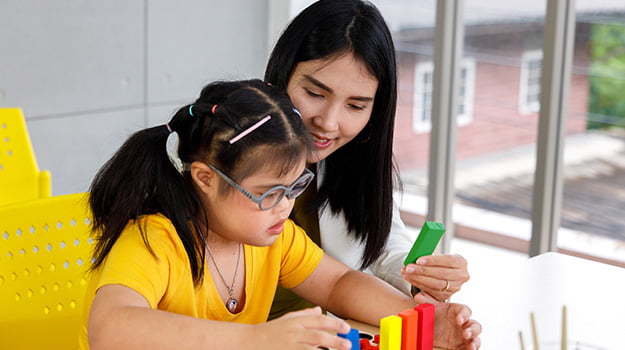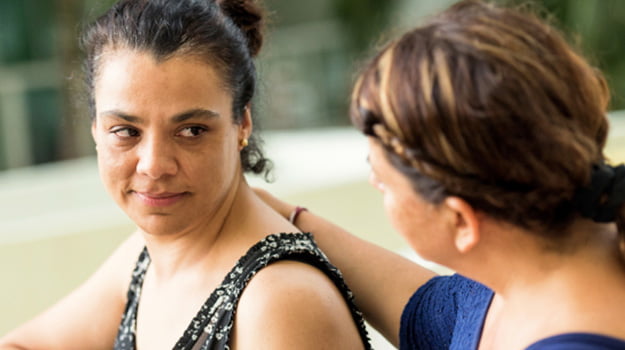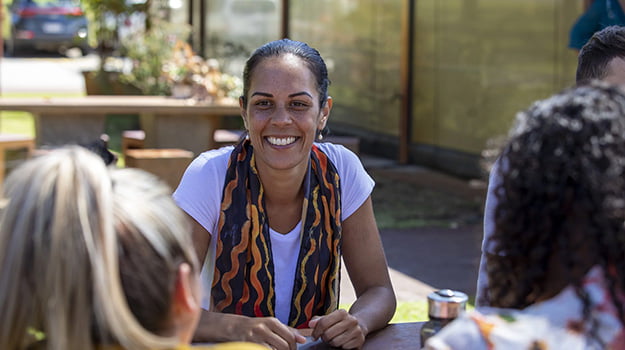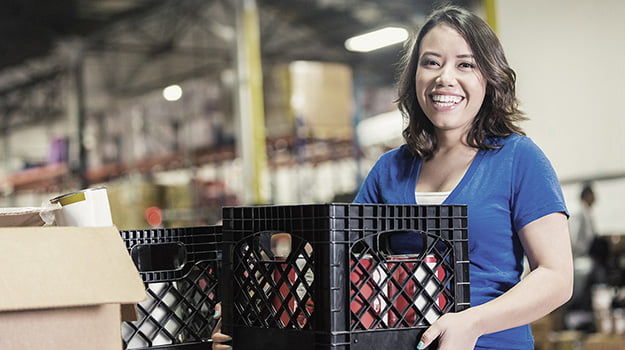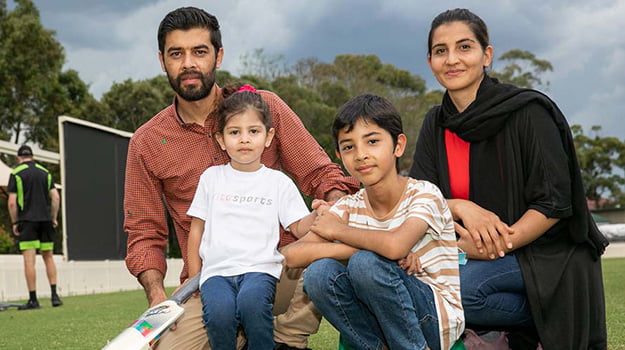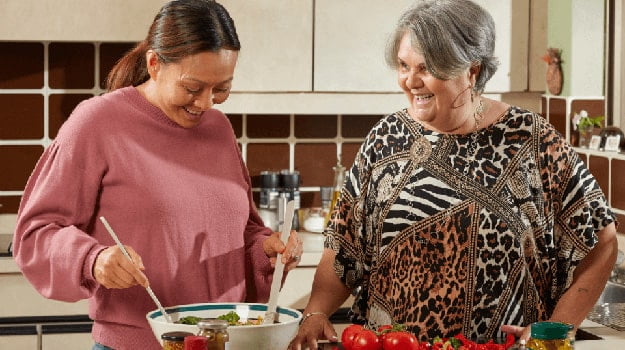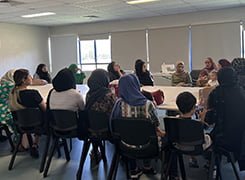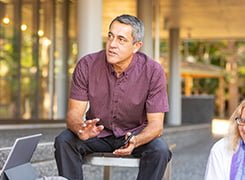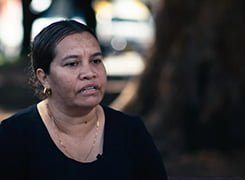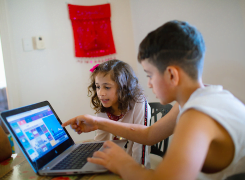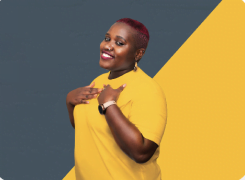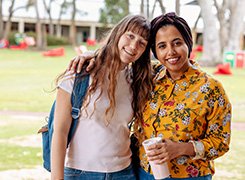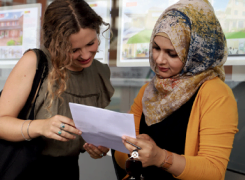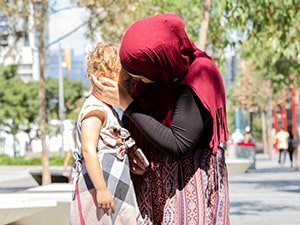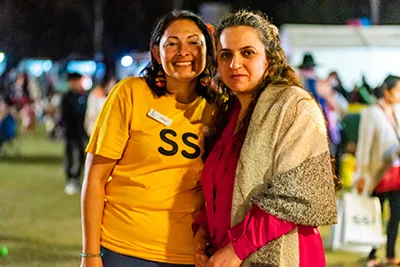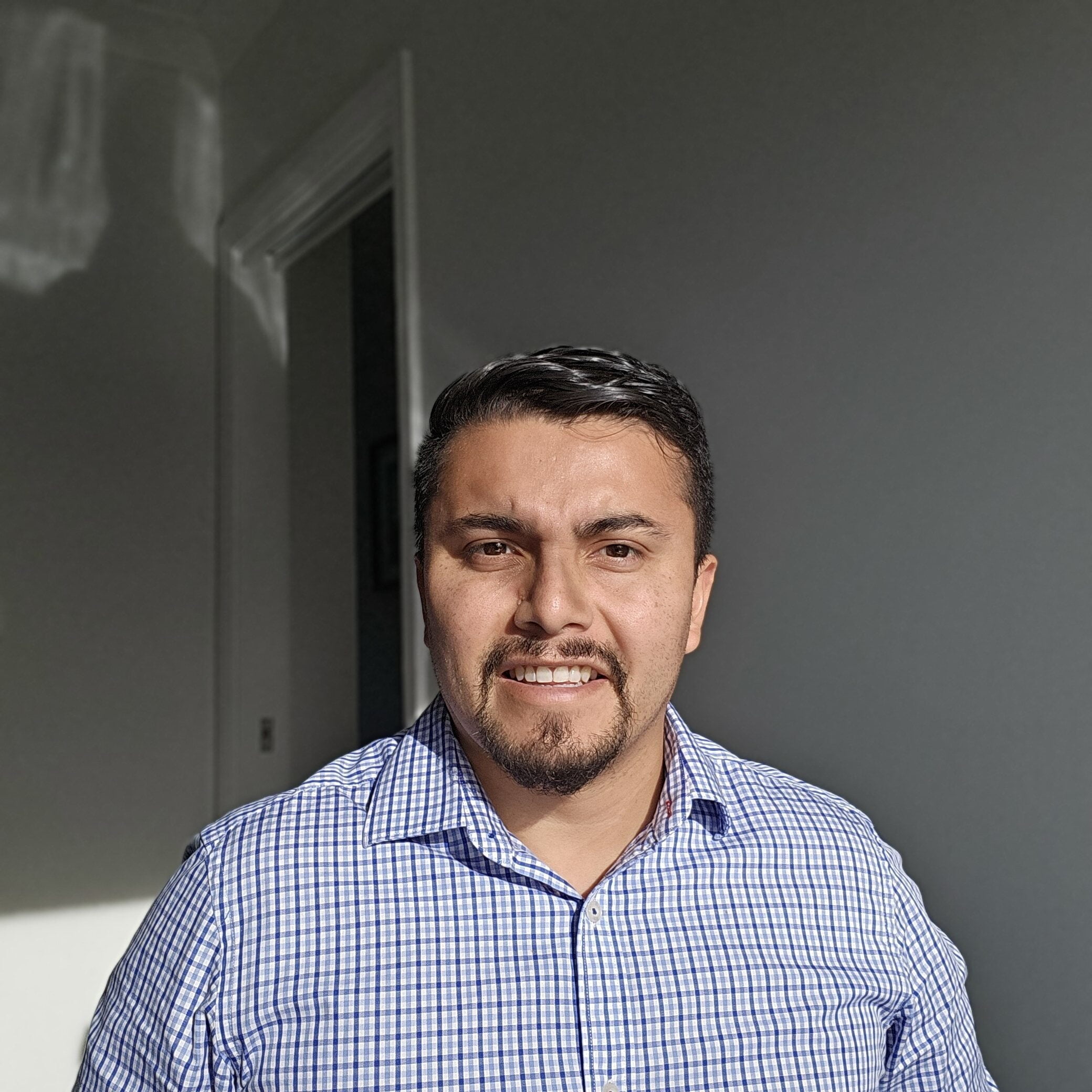
“I follow the mantra that living is about giving. That’s the joy of this work. It can be as simple as playing music for an elderly person and seeing their face light up as their favourite song comes through the speaker,” said Jose Miranda Garcia.
This philosophy of putting people first is at the heart of Jose’s work as SSI’s Business Relationship Lead. He and his team are the bridge between 920 aged care providers across NSW, the ACT and the Home Care Workforce Support Program (HCWSP).
Jose migrated to Australia as a young refugee from El Salvador. Since then, he has been motivated by one simple question – how do I give back to the community and help people in need?
“I’ve always wanted to work in the community sector and be able to make a difference in meaningful ways,” said Jose.
His role now allows him to direct his skills in IT, recruitment and business development towards impact within the aged care sector.
“The first three things I think about is how do we make something faster, more efficient and more effective for the people involved,” he said.
Jose and his team recently led the development of a refined candidate matching algorithm – a CRM system that matches care workers to clients based on skills, needs, languages and backgrounds. Its aim? To make sure the right carers are placed with the right clients.
“The algorithm essentially gives providers a more tailored match of participants,” Jose said. “It cuts down processing time from 10 days to 72 hours, and more importantly, factors in cultural contexts.”
He continued, “For example, if we have an elderly person who speaks Arabic, we can now match them with a care worker from their local government area who speaks Arabic too. The worker will understand their culture and can make them feel respected, appreciated and acknowledged for their cultural norms and beliefs.”
For Jose, the new system is a win-win situation for the community, for the government, and for each person needing care.
Leading its creation has been one of many rewarding aspects of his role with SSI. Beyond this, he continues to find fulfillment in seeing his team grow, flourish and realise the impact their work can have.
“Once you connect your work to your why and your purpose, that’s the most rewarding part,” said Jose.
“We’re helping to fill a lot of recruitment gaps, assisting with retention, and building the capabilities of people within the Aged Care Market which is urgently needed at the moment. We also are supporting aged care providers and new people who are interested in joining the Aged Care Workforce. We essentially do the groundwork in the recruitment process to make the recruitment process as smooth and seamless as possible for new entrants and Aged Care Providers.”
Beyond getting people into aged care roles, a key focus of the HCWSP is removing barriers to joining the workforce. Jose and his team are constantly looking for the best ways to open more opportunities within the aged care sector.
“Everyone has had an elderly person in their life at some point. There’s a heartwarming experience in being able to take care of someone who needs that help,” Jose said.
As his role grows, Jose hopes he can continue supporting the aged care sector across a whole range of initiatives.
“It’s a growing industry that’s only going to get bigger, and within that, every connection is making a difference.”
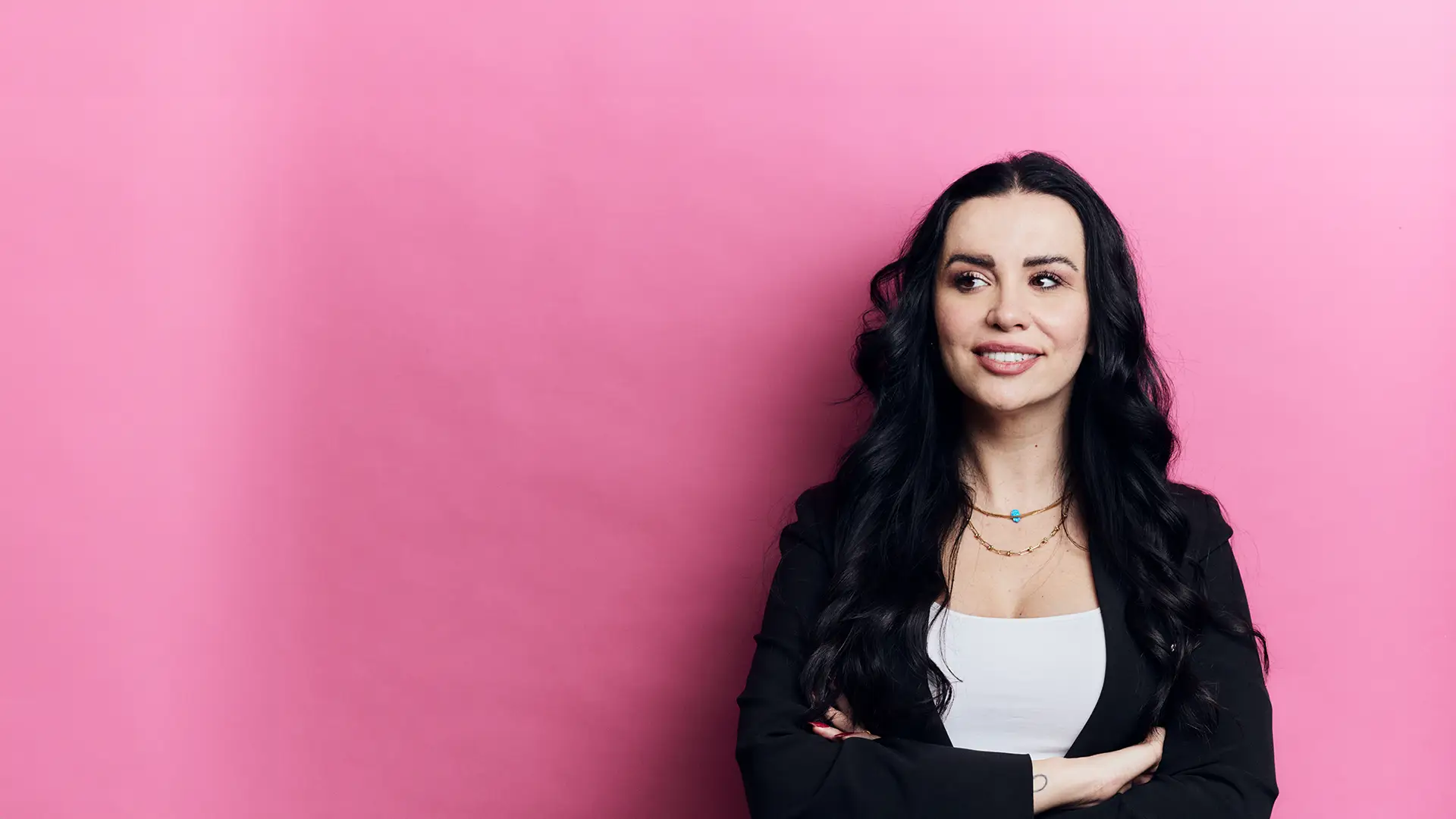
A passionate storyteller and social activist, Dima brought an impressive career history to her new home in Australia and plans to continue her work in helping solve challenges faced by migrants and refugees.
“Everyone has a story worth telling. Bringing people’s stories to life has been my passion and vision of choice since I learned to talk. I strongly believe in the transformative power of journalism to bring about positive change in the world. Even if it’s a small change, I will always grasp it to try to make our world a better place,” Dima reflected.
Dima graduated with a degree in Journalism from Damascus University in 2014. Since then, she has built a versatile, decade-long career in journalism, working as a radio show host, editor-in-chief, and BBC Extra reporter covering the Syrian war. She also founded her own social media and marketing consultancy.
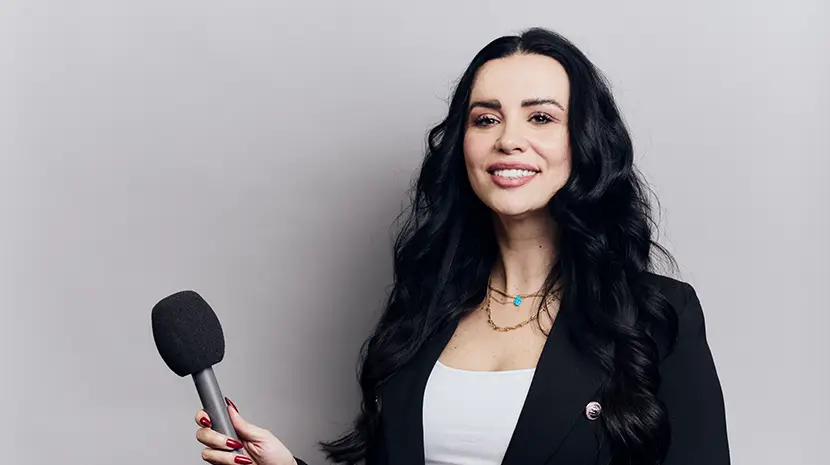
Originally from Syria, Dima arrived in Australia in 2023 from Iraq where she had been living with her two brothers for two years after fleeing the war.
“I was excited to start my new journey in Australia. From the moment we arrived, SSI’s team guided us through how to set up our new life here, including opening bank accounts, accessing Medicare, and getting settled in a house. They also helped me update my CV and cover letter to align with Australian standards,” Dima recounted.
Dima’s ambition, tenacity, and preparation have always driven her career success, allowing her to land her dream job in record time. “Before arriving in Australia, I aspired to work for SBS Australia because I could see myself there as a journalist and content producer. I started following the organisation and keeping an eye out for any vacancies,” she said.
Just four months after arriving, a job opportunity for a Digital Producer role opened at SBS. She applied and was offered the position.
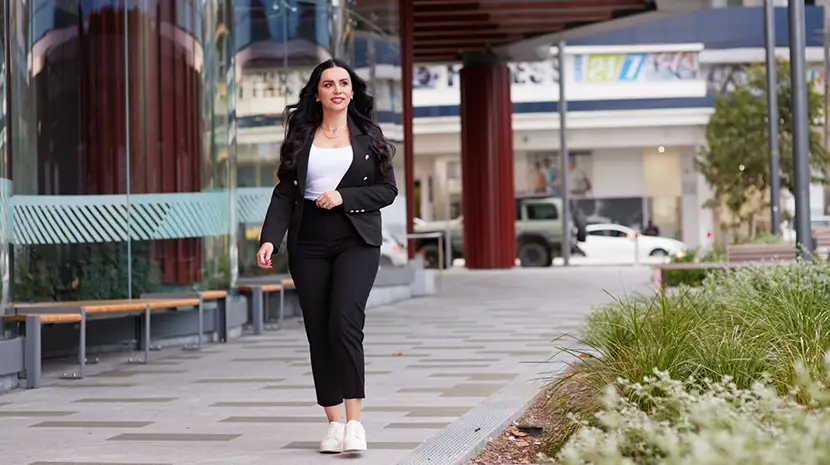
“The best way to reach people in this new era is as a digital producer, through digital platforms. I can create stories, videos, and audio, as well as present and host. It’s an open space for me, I believe I have what it takes to achieve a more significant impact on humanity, and I want to continue working on this in Australia,” Dima said.
“I found my dream job, but believe me, it’s not always easy. As a new immigrant, I am learning about Australia with our audience and my team! In my work, I often introduce Australia to our audience, by explaining Australia’s culture, news, and history. My work makes me learn quicker, personally and as a journalist. It’s a great learning journey,” she reflected.
Dima considers herself lucky compared to other professional refugees who must go through stricter processes to land a job that matches their skills and expertise. In fact, Dima’s brother is a doctor and despite passing the required medical exams and applying for hundreds of jobs, he hasn’t been able to secure a placement yet.
While there are many obstacles refugees face when trying to land their dream role in a new country, Dima’s experiences show preparation can make the journey smoother.
“If you plan ahead and come prepared, life becomes easier. In almost all cases, this involves improving your English, as communication is key. Even before coming to Australia, I began working on my English, and I am still working on it.”
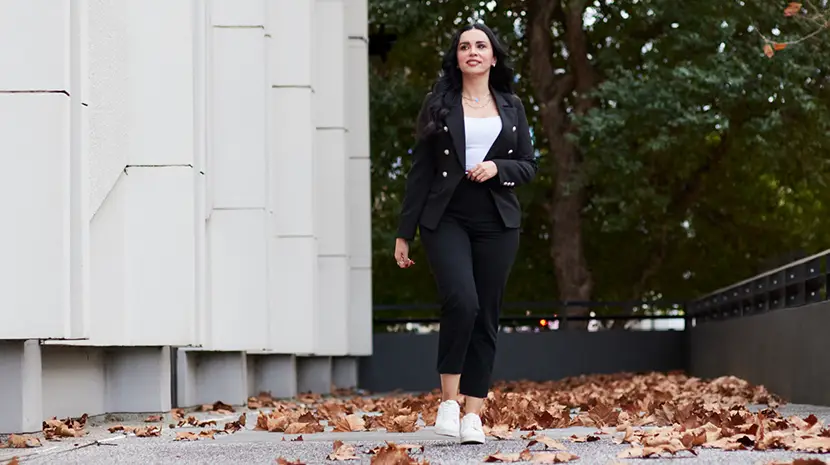
On the other hand, some obstacles can only be overcome if Australian employers do their part.
“How can we gain Australian work experience as newcomers if we aren’t given a chance? We deserve an opportunity to showcase our skills and expertise that we brought with us rather than being immediately rejected.”
Dima now dreams of exploring the world once she gets her Australian passport. “I have always wanted to travel and discover the world, but unfortunately, with a Syrian passport, it is just not possible. I can’t wait to go to Europe to visit my friends and explore new cultures.”
Learn how you can get involved and support refugees shape their own path this Refugee Week. Find out more about our campaign and events near you.
Join the campaign to break down barriers so skilled refugees and migrants can work in their fields of expertise and contribute billions to Australia’s economy. Learn more about our Billion Dollar Benefit campaign.

23-year-old Anastasiia (Ana) is wise beyond her years. Originally from Ukraine, Ana is forging a passionate life for herself, working in her dream job in Australia – but it hasn’t been without challenges.
Ana left Ukraine in 2022 at the start of the Russian invasion. She left behind her parents, and a mother who was firm in her resolve to give Ana the opportunities she deserved.
Armed with youthful confidence, and partway through a bachelor’s degree in international law, Ana was determined to make the most of her education and experience in her new city of Sydney despite the challenging circumstances.
“At one point I was homeless and jobless. I couldn’t plan – there is no planning ahead in this situation – you are just grabbing chances by their tail,” Ana recalled.
Like many new arrivals who receive initial housing and support, there are obstacles to overcome before many individuals and families can find permanent security or the freedom to live life to the fullest.
It was a gruelling year as Ana faced the daunting task of searching for permanent work and accommodation in a new country, largely alone.
After an uninspiring administration role at a law firm, Ana was left walking around Sydney city handing her resume out to cafés and shops.
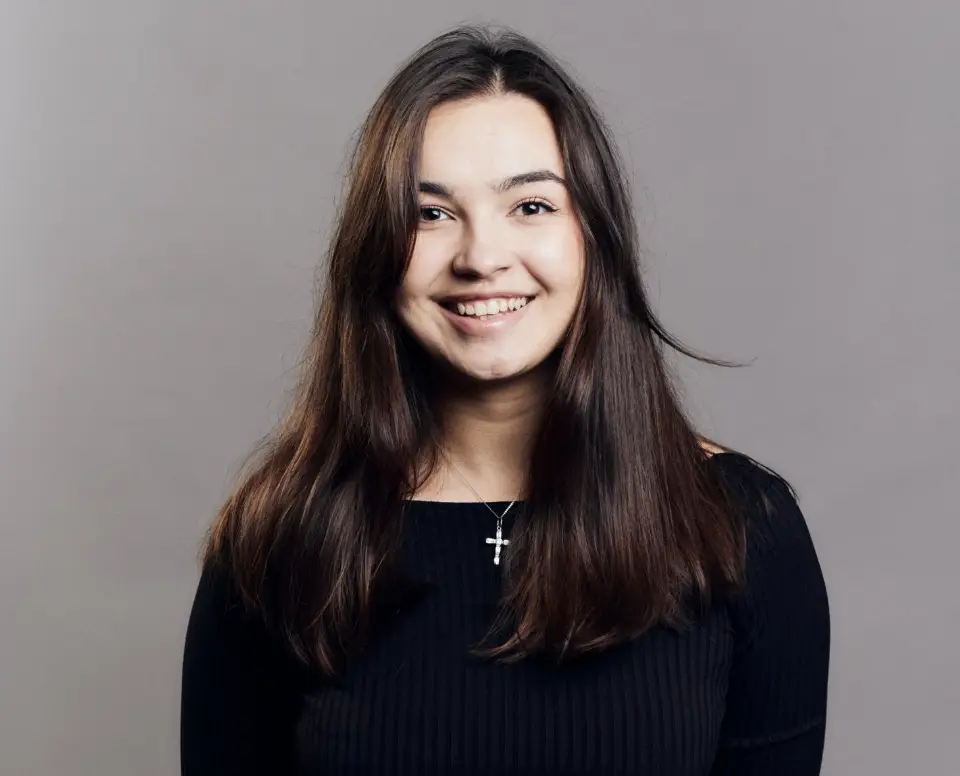
“I remember giving my last CV out, and as I walked out of the café, I burst into tears. It was at that point I remembered my faith and the conversation I’d had with God, and I knew then that I didn’t need to worry. He would give me my daily bread. This is why I have such strong faith,” she said.
Fate, faith, or both led her into a music shop, and to a new employer.
“The record shop owner listened to my story and gave me a job. I worked weekends there while finishing my degree. I dearly loved that job. I met a lot of incredible people, but at some point, I knew I had healed and needed to move on.”
Ana was intent on finding a job that meant something to her. Many new arrivals are often in similar circumstances and looking for a chance to utilise their overseas skillset to lead fulfilling careers.
After a temporary job in a publishing house, fate called again, this time in the form of her SSI caseworker. A job opportunity had opened at SSI’s Immediate Services team, which led Ana to her dream job as a support worker for new arrivals. Her current role focuses on providing essential living supplies, housing and support to new arrivals in their first moments in Australia.
“This is my place. This is my team. I love it. I realised that giving back to people – this is my type of environment. I am not a businessperson; I am a person of passion. I’m fighting for the idea. I’m standing for the idea,” Ana said.
It’s been the experience in this role that led Ana to the realisation that her passion was in giving back to others, and genuinely helping people in need rather than pursuing a high-flying corporate career.
“Money will come and go, but it’s not important to me. In this role, I’m delivering real support for people.”
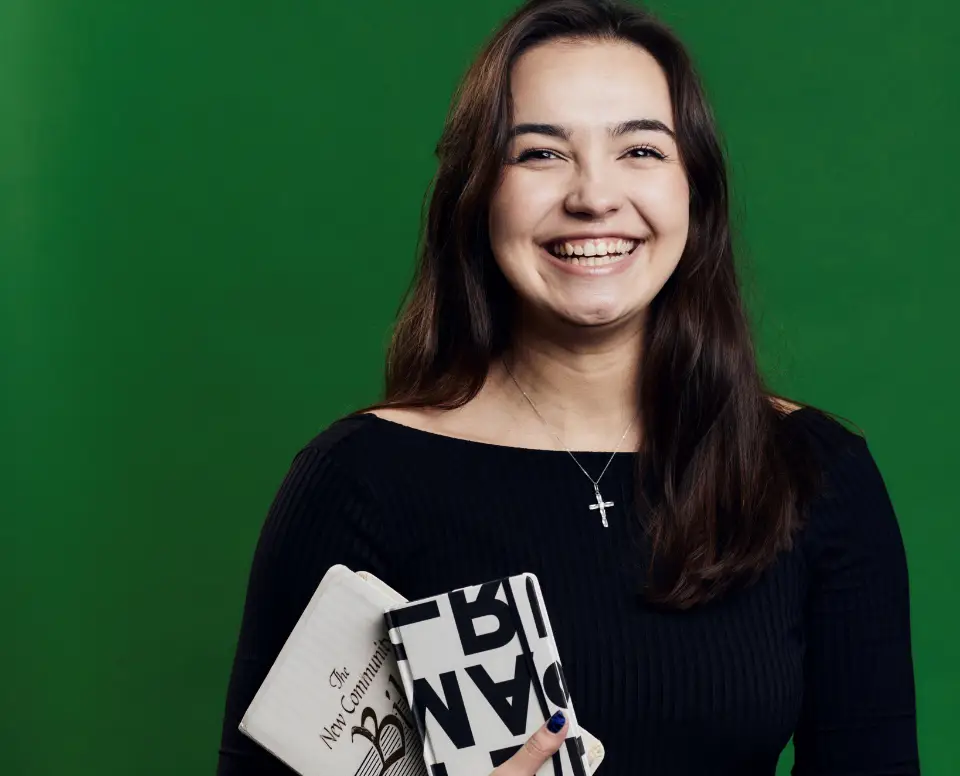
Her job security has also enabled her to support family still living in Ukraine.
“Supporting my family brings me so much joy. I sacrifice some privileges and needs but helping them is crucial because of the circumstances in Ukraine. My mum sacrificed a lot for me, so I am happy to be able to give back to her with love and grace.”
As for Ana’s future, there are many important experiences on the horizon, including further studies and travel, and perhaps even a homecoming one day.
“There will be a moment when I need to go back home, to create something that will change people’s lives. It’s not a coincidence that I ended up in one of the best countries in the world with the opportunities and career growth I have had. I can’t waste it on a peaceful life – I will go back into the fire as soon as I am strong enough.”
When reflecting on the jobs and experiences Ana has had in Australia, her advice to employers is clear: “Give chances to refugees. Don’t look at the person just on paper – have the discernment to see the inner person. Believe in that person and have faith in that person. It’s about having human insight, compassion and faith, and keeping an open mind.”
“And for refugees and those in the same position I was in – don’t lock yourself up. Build your life here, dive into the culture. Push through the walls, knock down the doors and they will open. Find and ask, and it will be given.”
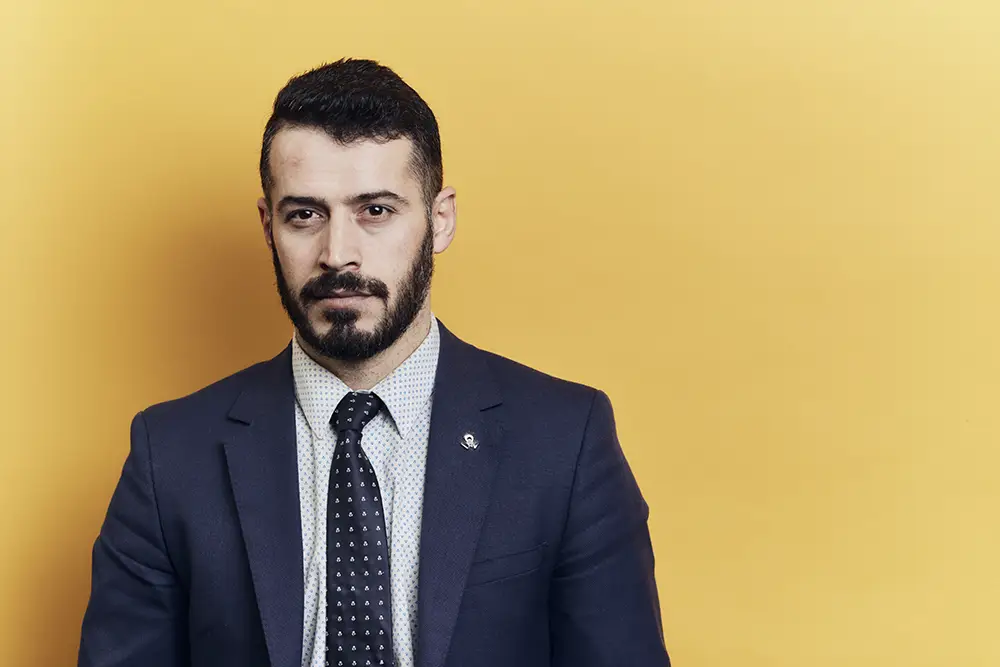
Since arriving in Australia in 2023, Syrian refugee and Automation Engineer, Alaa Daher has done all the right things to find employment in his field. He developed his English language skills, gained his driver’s license, had his Bachelor’s degree recognised, and completed work-readiness workshops. Yet the ambitious 37-year-old has received the same response to the more than 70 job applications he has submitted – “Sorry, you need Australian work experience”.
Before the war in Syria forced Alaa to leave his homeland, he completed a Bachelor of Science and Electrical Engineering/Control from Damascus University. He went on to lead a large team of engineers as a Network Administrator at Syria’s National Agency for Network Services. Alaa was passionate about his job and eager to advance his career.
So, when Alaa received a humanitarian visa to come to Australia, his number one priority was to continue his career and find a job.
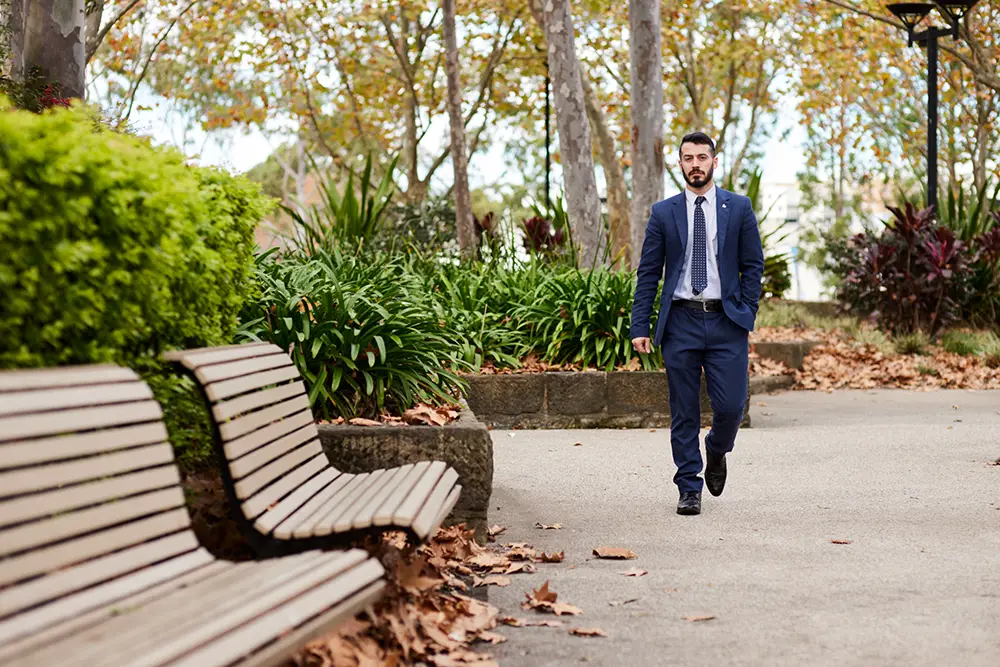
“When I came here, I believed Australia was a country of qualified people who respect Bachelor’s degrees. I was confident that employers would guide me to find the correct role in my field where I could contribute to their business.”
To have the best chance of finding suitable employment, Alaa needed both recognition of his formal education and to develop his understanding of Australian work rights and culture.
Within months of arriving in Australia, he was supported by the SSI employment team and case worker to get his driver’s licence and successfully undertake the process to have his degree recognised. To enhance his soft skills, Alaa also attended several work development workshops, on topics such as how to find employment in Australia, creating a professional network, resumes and cover letters, work rights and culture, and mock interview practices.
“When I received my recognition, I started applying for jobs straight away. I don’t want to be dependent on Centrelink, it is important to me to be independent and support myself,” he said.
Frustratingly, as the responses to his applications arrived in his inbox and he received feedback from interviews, Alaa was repeatedly told he was not suitable for the position due to his lack of Australian work experience.
“If I have the qualifications and experience required, I can do the job. Why are my skills disregarded if my experience is from overseas? This is an unfair process which means many workers like me are missing out, and businesses are not getting the workers they need,” said Alaa.
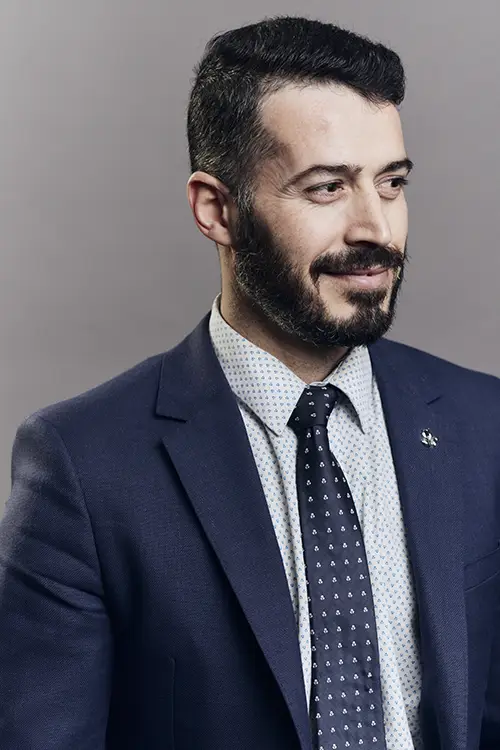
In an attempt to get his foot in the door, Alaa resorted to seeking unpaid roles and internships, without success.
“It is very difficult if you were not born in Australia. I have offered to work for free or in lower-skilled roles but have not had success. How are you supposed to get Australian work experience if nobody gives you a chance?” he asked.
To support himself while he continued to seek work in his area of expertise, Alaa found employment with a bank as a banking assistant.
He is grateful for the opportunity to earn a living and is taking any opportunity to keep his customer service and communications skills fresh but remains determined to continue his engineering career in Australia.
“If we make the system for matching people with skills and qualifications with businesses that need the roles simpler, there will be benefits not only for people, but also for the government and the country.”
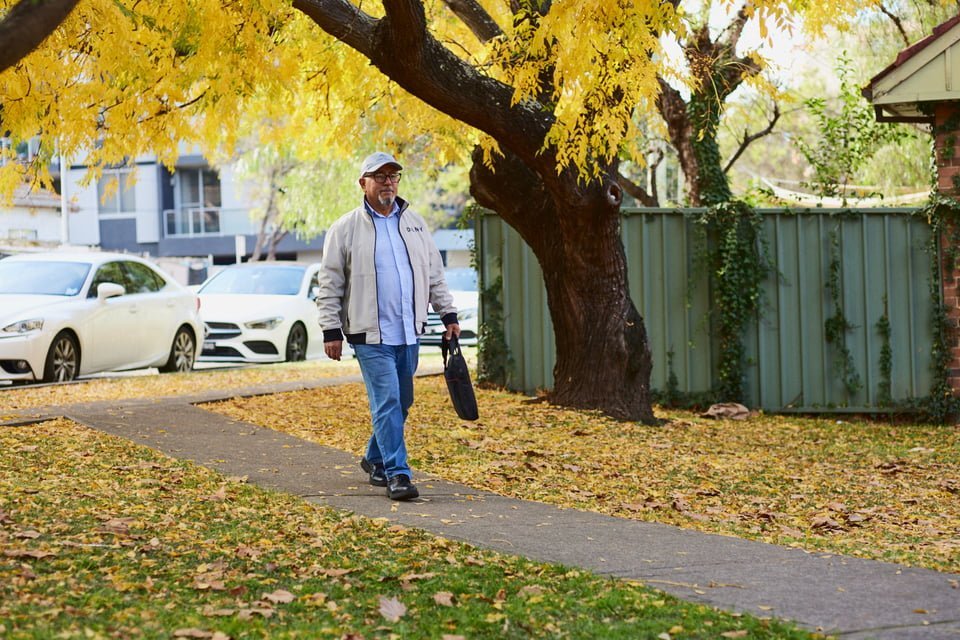
Syrian-born AbdAlmassih had enjoyed a successful IT career that spanned more than two decades in his homeland.
A proficient programmer specialising in design, development, and integration, AbdAlmassih built on his experience with prominent corporations and public sector entities in Syria to establish his own IT company.
“I love IT, it’s my area of expertise – my specialty. It’s what I know best,” he said.
Amidst the eruption of the civil war, AbdAlmassih and his family were forced to flee Syria and found safety in Western Sydney, Australia, in November 2022.
Like most highly skilled refugees and migrants, AbdAlmassih has encountered obstacles when attempting to break into the tech industry in Australia.
Since enrolling in SSI’s Refugee Employment Support Program (RESP), AbdAlmassih has received support in navigating the local job market. However, he is still facing challenges of having his overseas IT qualifications, a diploma in systems analysis and programming from France, recognised in Australia.
The Australian overseas qualification authority requires proof of work experience in IT in Syria, such as pay slips and work contracts, to meet the eligibility criteria in his field.
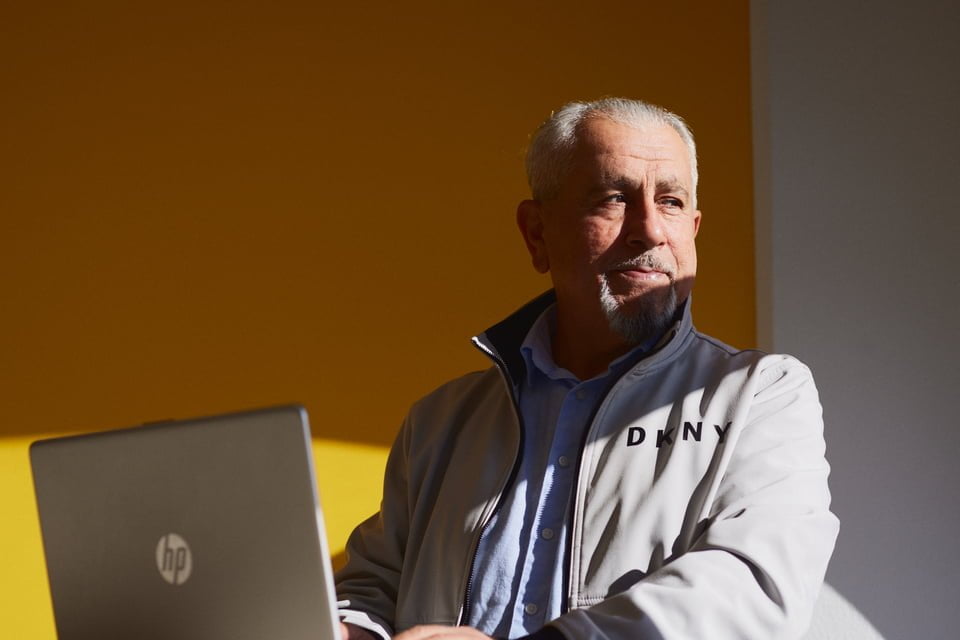
However, like many highly skilled newcomers, AbdAlmassih has found it impossible to source and obtain this evidence.
“We left our country in a hurry, without much – leaving behind many documents. All I have here is my university documents, some personal papers and the business card of the company I ran in Syria,” he said.
For many workers from outside of Australia, like AbdAlmassih, legitimate work is completed as cash jobs without documentation.
He explained, “Overseas, many workers don’t receive pay slips. That’s just how it works.”
AbdAlmassih has been unable to reconnect with his former employers in Syria. He explained that many companies closed during the war, and he lost these connections from his previous work years ago. This has made it difficult for him to access the evidence needed to have his work formally recognised.
Regardless, AbdAlmassih has often felt disheartened by his dream of getting his studies recognised, knowing that even then, it wouldn’t be enough.
“I’ve found that many IT employers won’t acknowledge a degree from overseas, thinking it’s not strong enough, and often insist on a local degree from Australia,” he acknowledged.
“Even unpaid volunteering roles in the industry are turning me down. I tell these employers I will work for free, or I will work for half a normal wage. I don’t understand. I have 20 years’ experience in my field. I apply to many jobs, yet I never receive any response.”
On the other hand, Australia is desperate for tech talent. According to recent figures, 70 percent of IT jobs in Australia have skills shortages while demand is only set to increase.

Determined to break into the industry he is passionate about, AbdAlmassih enrolled in a TAFE Cert 4 program in web development to acquire local qualifications in his field. He was unable to complete the course because, like many newcomers, he faced difficulties taking the course in a new language.
“I knew the content; I know it so well. But I found it difficult to understand my teacher, especially with the assessments and deadlines. I couldn’t ask her to speak more slowly or clearly to help me understand – I was in a room surrounded by Australian students,” he said.
AbdAlmassih is currently enrolled in his fourth TAFE course to enhance his English skills and will soon undertake programming and web development courses. He continues to actively pursue relevant employment opportunities and hopes that soon someone will give him a chance.
“I want to work, I love working. I want to put my skills to use in this great country.”
RESP has been funded by the NSW Government.

A passionate painter, Ali balances his art and graphic design with a security job, studying and plans to mentor the next generation of Australia’s diverse artists.
Ali’s arts career started at a young age. At 12 years old, Ali had his first exhibition in his local town in Syria exploring themes of nature and the environment.
“Even as a kid I always loved drawing and painting, I was born with it. I continued to pursue this passion through studying bachelor’s degree in visual communication from the Faculty of Fine Arts in Damascus in Syria,” he said.
While Ali was studying, he started his own graphic design freelance business, participated in exhibitions across Syria, and offered design services pro bono alongside other volunteering – but in his words, ‘the war damaged everything’.
Ali moved to neighbouring Iraq where he worked in senior graphic design roles across various industries, including print and production and the on-demand delivery startup Lezzoo, which is now going international.
By the time Ali landed in Australia in 2022, he had a degree and over 10 years of varied professional experience in arts and design. This is also when Ali’s struggles with finding meaningful work that matched his experience and skills began.
“Getting my qualifications recognised was easy for my profession compared to doctors or engineers. With SSI’s help, it only took me three months and they also helped me cover the cost. The challenging part was getting employers to see the value in my overseas skills and degree,” he recalled.
“I applied for around 100 graphic design jobs. I was applying for everything, any opportunity that was related to my skills. I only got one response that didn’t lead to employment.”
Ali is clear that Australian employers are missing out by not giving professionals like him a chance.

While Ali sent 100 applications to try to find work in graphic design, it only took one application to land a job in security. Ali now works as a security officer in a data centre to help him support himself financially so he can continue pursuing his passion of arts and design.
“It’s so important to highlight to employers that workers with overseas qualifications can be a valuable addition to their business as they bring new ideas, diverse skills and experience.”
“Offering programs focused on integrating refugees into internship programs would go a long way to help bridge the gap between overseas qualifications and local work requirements and culture,” Ali reflected.
“I now work as a self-employed graphic designer and artist, and I’ve completed various projects including drawings, paintings, branding and logo designs for musical artists, community organisations, restaurants, cultural associations among other clients in Sydney, Melbourne and Brisbane.”
“I’m also currently pursuing a business course to strengthen my local knowledge and entrepreneurship skills, and I’m aiming to complete a graphic design certificate to align with local standards and get more understanding of the market,” he added.
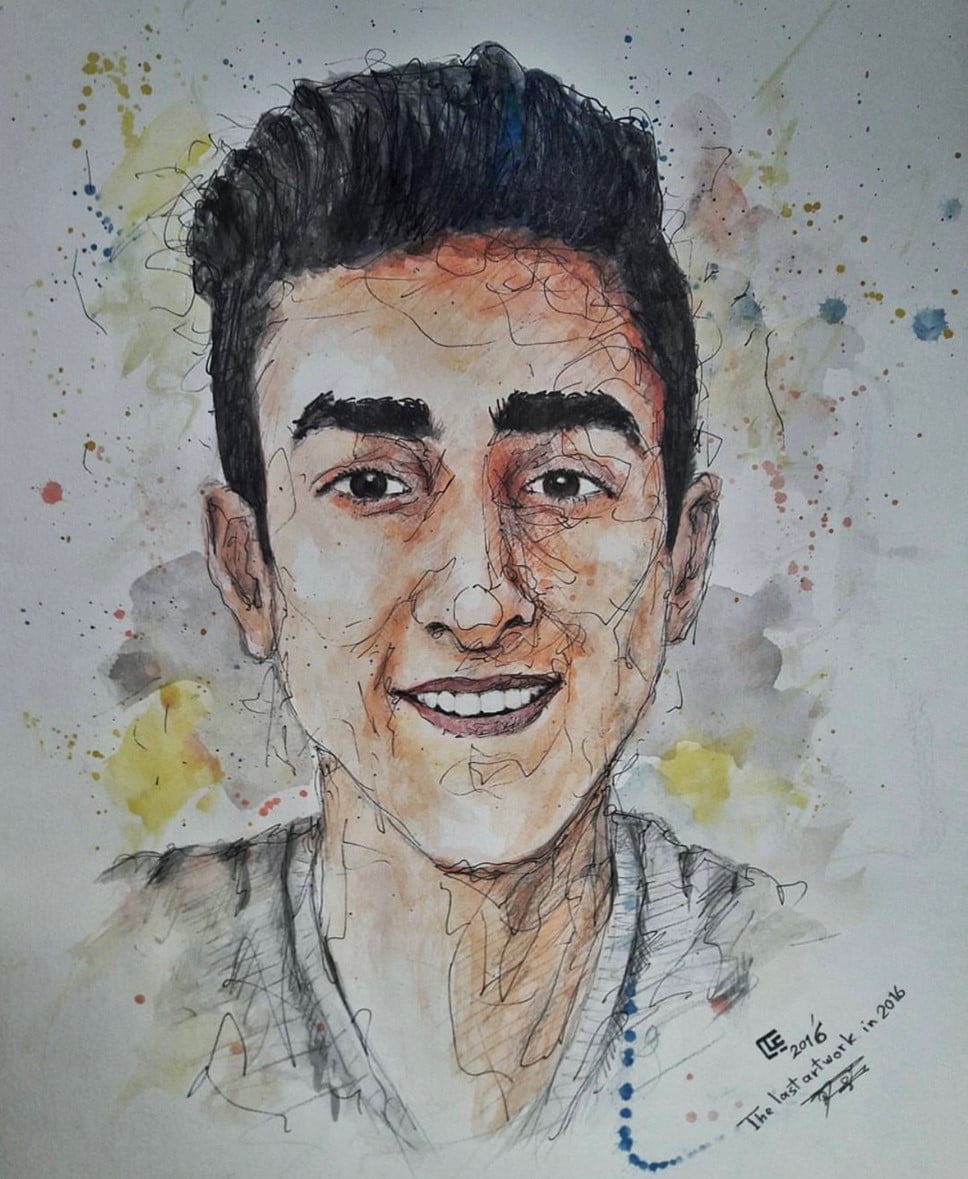
Beyond graphic design, Ali continues to pursue his passion in painting and drawing. When Ali arrived, he was connected to a community of artists who have been instrumental in shaping his artistic journey in Australia.
“My case manager referred me to SSI’s Art and Talent Committee, which allowed me to attend workshops and exhibitions – I sold one painting in a recent exhibition I was invited to,” Ali said.
“I continued to expand my skills by participating in a ‘Train the Trainer’ workshop with artist and educator Dr Paula Aboud. Additionally, I had the opportunity to facilitate a calligraphy and painting workshop organised by SSI at the Refugee Welcome Centre, where I shared my knowledge with newly arrived refugees and Inner West locals.”
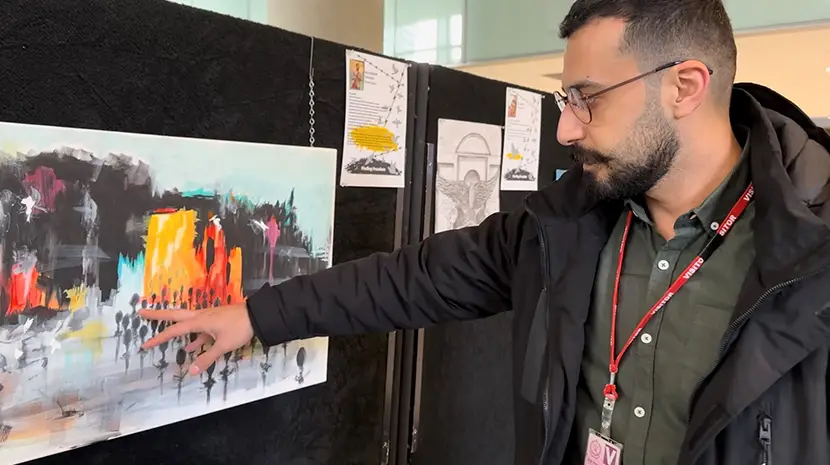
Last year during Refugee Week, Ali was invited to showcase his art at the NSW Police Force Headquarters in Parramatta and he will return this year to showcase his art in the same venue. The theme again explores ‘freedom’, but this year with the addition of ‘family’.
For Ali, his family continues to motivate him to move forward and achieve success. Ali is proud he comes from a family of artists and musicians, and he grew up watching his dad paint and listening to his uncle play instruments of all kinds, from the violin to the traditional Middle Eastern instrument oud.
“Reuniting with my family in Australia is my key motivator and ultimate goal. I eagerly anticipate the day when we will be together again after eight years.”
Two years on Australian soil, Ali has a lot to be proud of and still a lot to strive towards.
“I am most proud of my resilience and ability to rebuild my life and career despite being separated from my family,” he acknowledged.
“Achieving recognition for my work and building connections in the local arts community has been a significant milestone for me. I want to keep building on this and mentor emerging artists from diverse backgrounds so I can contribute to the cultural landscape of Australia.”
Learn how you can get involved and support refugees shape their own path this Refugee Week. Find out more about our campaign and events near you.
Join the campaign to break down barriers so skilled refugees and migrants can work in their fields of expertise and contribute billions to Australia’s economy. Learn more about our Billion Dollar Benefit campaign.

